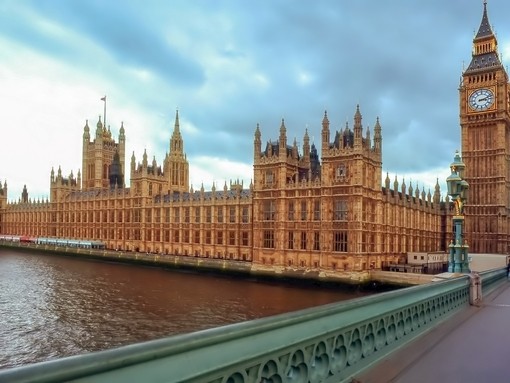
Contents
- Changes to Umbrella Companies Responsibilities
- Employer National Insurance
- National Minimum Wage
- Income Tax & National Insurance (NIC) thresholds
- Corporation Tax
- Research & development tax reliefs
- HMRC Compliance
- HMRC Late Payment Interest
- Skills Development
- Investment in Infrastructure
- Capital Gains Tax (CGT) rates
- Inheritance tax
- Abolition of Non-Dom Status
Contents
The Chancellor Rachel Reeves has today delivered her first Budget and the first Labour budget in 14 years to the House. After months of speculation of what might be included we now have more certainty on the tax changes that will be implemented to fill in the alleged £40bn “black hole”.

This Budget includes the biggest change to agencies and umbrella companies since 2021.
We have outlined key headline changes but as always, the devil is in the detail and it will be interesting to see what further information is released in the next few weeks and months.
Changes to Umbrella Companies Responsibilities
With effect from April 2026, Umbrella companies will no longer be legally responsible for operating PAYE on payments to the workers that they employ.
Instead it will be the agency that has a contractual relationship with the end client that becomes responsible for accounting for PAYE.
Agencies can still choose to outsource the operation of payroll to an umbrella company, but the agency will still be responsible for any shortfall.
The hope is that these new measures crack down on the use of fraudulent umbrella companies.
The detail has not yet been released as to how the above will be implemented and operated but it is fair to say that this is the biggest shake up of the umbrella market for a long time.
Employer National Insurance
Whilst employment taxes for “working people” have not been directly increased, the rate of employer’s national insurance will increase from 13.8% to 15% with effect from April 2025.
The threshold at which employers start paying national insurance will also be reduced from £9,100 to £5,000. The overall cost shall actually be more than the 1.2% base line rate increase.
To counteract the measure for small businesses, Rachel Reeves has increased the employment allowance from £5,000 to £10,500 and removed the £100,000 threshold.
National Minimum Wage
With effect from April 2025, the minimum wage for anyone over the age of 21 will increase by 6.7% to £12.21, for those aged 18-20 a 16% increase to £10 per hour and qualifying apprentices an 18% increase to £7.55 per hour.
The Government has made it clear that the intention is to eventually have a harmonised rate for all adults in the next few years.
Income Tax & National Insurance (NIC) thresholds
The current freeze on income tax and National Insurance thresholds as announced by the previous Government will be maintained. With effect from 2028, the bands will be increased in line with inflation.
Corporation Tax
The government has published a Corporate Tax Roadmap. The Roadmap includes a commitment to cap the Corporation Tax Rate at 25% and maintain key reliefs such as Full Expensing, the Annual Investment Allowance, R&D relief rates, and the Patent Box.
Research & development tax reliefs
The Government will discuss widening the use of advance clearances in research & development reliefs with stakeholders, with the intention to consult on lead options in spring 2025.
HMRC Compliance
A key focus of the budget was the collection of taxes that people should already be paying. In addition to a large scale crack down on the Umbrella market the Chanceller also allocated funding to HMRC to increase staff numbers and improve IT infrastructure.
HMRC Late Payment Interest
In order to deter the late payment of tax the Chancellor announces an increase of 1.5% from April 2025. Based on the current rate this will take the rate chargeable on corporation tax late payments to 9%. The rates do vary depending on the tax outstanding but the additional 1.5% will apply across the board.
Skills Development
The existing Apprenticeship Levy will be widened and be renamed the “Growth and Skills Levy”
The new levy allows employers to use a portion of their contributions for non-apprenticeship training meaning businesses can address specific skills shortages and invest in a wider range of training programmes.
Investment in Infrastructure
Rachel Reeves also announced an investment of £50b into transport, energy and digital infrastructure. The projects are expected to create a wealth of jobs and part of the Government’s 10 year infrastructure plan.
Capital Gains Tax (CGT) rates
With effect from 30 October the lower rate of capital gains tax will increase from 10% to 18% and the higher rate from 20% to 24%.
The rates on residential property will remain the same and special rules will be implemented for the disposal of carried interest.
The rate of CGT that applies to disposals that qualify for Business Asset Disposal Relief will increase from 10% to 15% from 2025 and to 18% from 2026.
Inheritance tax
The Chanceller announced key changes to inheritance tax, including a huge shake up to Agricultural Relief and Business Property Relief meaning that relief will now be limited to 50% in excess of £1M.
With effect from April 2027, residual pension pots will now be within the scope of IHT.
The nil rate band (currently £325,000) will remain frozen for the next two years and the rate of IHT on death will also remain at 40%.
Abolition of Non-Dom Status
Following on from changes started by the Conservative Government, Rachel Reeves today announced that with effect from April 2025 the non-dom tax status will be abolished. In replacement a residence based taxation regime will be introduced.
Contents
- Changes to Umbrella Companies Responsibilities
- Employer National Insurance
- National Minimum Wage
- Income Tax & National Insurance (NIC) thresholds
- Corporation Tax
- Research & development tax reliefs
- HMRC Compliance
- HMRC Late Payment Interest
- Skills Development
- Investment in Infrastructure
- Capital Gains Tax (CGT) rates
- Inheritance tax
- Abolition of Non-Dom Status









